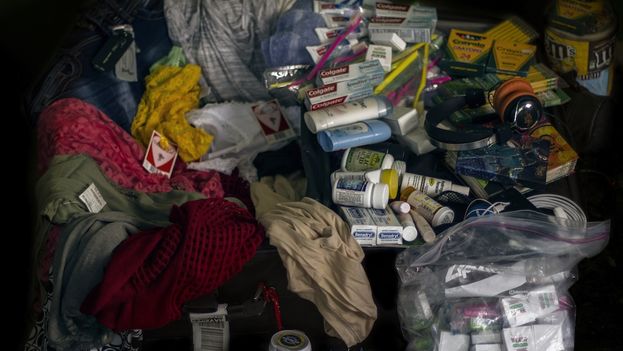
Customs restricts imports even more
Reinaldo Escobar, Havana, 14ymedio | 14 July 2014 — On the occasion of the latest customs regulations that further limit the products that travelers can bring to the island, a group of officials from the General Customs of the Republic of Cuba (AGR) held a press conference to respond to some concerns of the population. Among the pearls exposed there, it’s worth nothing an argument put forward by Idalmis Rosales Milanes, deputy chief of the AGR, where she tried to equate these actions with what happens outside of Cuba. “All countries,” she said, “regulate non-commercial imports to their territory.”
And it’s true. What this official didn’t say is that in all countries there are other regulations for commercial imports to non-state entities. If this weren’t the case, I would have to believe two things: that in the rest of the world all the stores are state-owned, or that the goods for sale in them are produced entirely in the country in which they are located. It gives the impression that this precision is for idiots, because it’s so irrational it’s embarrassing to have to clarify it.
The absurdity is normal only if the entire environment is also absurd. Whoever developed and approved these resolutions was personally persuaded that commerce is a crime unless it is performed by the only state monopoly that they themselves control.
Instead of developing a list detailing how many razors, pairs of shoes or fake nails can be carried in your suitcase, it would be much more useful to allow the importation and sale of whatever merchandise (non-lethal) is produced in the world, and to promote its free trade by private individuals who would be those who would assume the risk of being left with them in their shops if they weren’t able to sell them.
The law should allow the owner of a restaurant to import, in his condition as a private businessperson, the wine, pasta and cheese consumed by his customers. The seamstress should also have the right to bring fabric and dyes from other countries with which she designs her clothes, and the small trader must be able to count on the possibility of bringing the instant glue, the sponges for cleaning, and the hair dye, from other latitudes to the island. All this, backed and supported by commercial permits and import licenses… in the hand of the non-state sector.
That theses commercial imports are on a list of prohibited products, that there is a limit of the number of admissible pieces, that a diversified tax is imposed according to the article… all this would be almost comprehensible and, especially, debatable. What I can’t make heads nor tails of is this “dog in the manger” conduct, which neither eats nor allows others to eat, and in this case neither imports nor allow to be imported; neither trades, nor allows others to trade.
